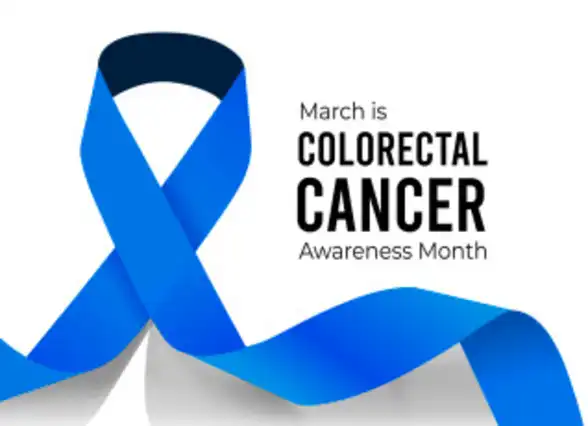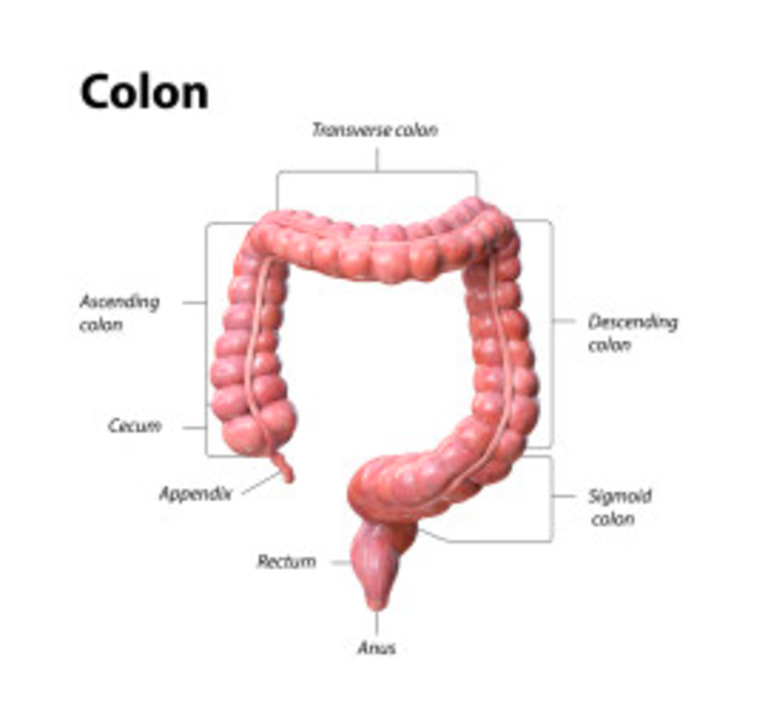Colorectal Cancer Awareness and Risk
Approximately 60% of colorectal cancer patients are over age 70, peaking between ages 70 and 75.
Get insurance benefits, legal documents, and medical records in one place

Helpful Highlights
The rate of people being diagnosed with colon or rectal cancer each year has dropped overall since the mid-1980s, mainly because more people are getting screened and changing their lifestyle-related risk factors.
Overall, the lifetime risk of developing colorectal cancer is about 1 in 23 for men and 1 in 25 for women.
In the U.S., when the numbers for men and women are combined, colorectal cancer is the second most common cause of cancer deaths (third leading cause in men and fourth leading cause in women).
About 90% of colorectal cancers and deaths are thought to be preventable.
What is it?
Colo-: Colon
-Rectal: Rectum
Most colorectal cancers are adenocarcinomas. These cancers start in cells that make mucus to lubricate the inside of the colon and rectum.

Colorectal cancer by the numbers
Excluding skin cancers, colorectal cancer is the third most common cancer diagnosed in both men and women in the U.S.
An estimated 1,880,725 people were diagnosed with colorectal cancer in 2020.
The 5-year relative survival rate for colorectal cancer is 65% and climbing.
The American Cancer Society estimates about 106,590 new cases of colon cancer (54,210 in men and 52,380 in women) and about 46,220 new cases of rectal cancer (27,330 in men and 18,890 in women) in 2024. It's expected to cause about 53,010 deaths.
The number of colorectal cancer cases in the U.S. has been decreasing since the mid-1980s. During the 2000s, incidence rates dropped by 3% to 4% each year. This was due to increased screening in adults aged 50 and older. From 2011 to 2019, incidence rates continued to decrease by 1% annually.
That said, incidence rates have been rising by 1% to 2% each year in younger people since the mid-1990s. Colorectal cancer is now estimated to be the fourth most commonly diagnosed cancer in the U.S. among adults aged 30 to 39.
Risk for colorectal cancer
NON-MODIFIABLE RISK FACTORS. These are risk factors that cannot be changed.
Age 50 or older (although the incidence of those younger than 50 is rising and the reason is unknown).
A personal history of colorectal polyps or colorectal cancer.
A personal history of inflammatory bowel disease (IBD; note this is different from irritable bowel syndrome or IBS).
A family history of adenomatous polyps or colorectal cancer.
An inherited syndrome or condition linked to colorectal issues.
Eastern European Jewish, American Indian, Alaskan Native, or African American descent.
Male (men have a slightly higher risk than women).
MODIFIABLE RISK FACTORS. These are lifestyle-related risk factors that can and should be changed.
Lack of regular physical activity
A diet low in fruits and vegetables
A diet low in fiber
A diet high in fat
A diet consisting of a lot of processed foods (especially processed meats)
Overweight and obese
Alcohol use
Tobacco use
Diabetes*
*Diabetes is considered a modifiable risk factor because it can be "changed" in the sense that it can be properly managed to reduce the risk of complications.
If an individual has a history of colorectal polyps or colorectal cancer, consider discussing a daily low-dose aspirin and calcium supplement with their provider.
Colorectal cancer screenings
The likely reasons that the death rate from colorectal cancer has been dropping in older adults for several decades are:
Colorectal polyps are now being found more often by screening, and removed before they can develop into cancers.
Screening also results in many colorectal cancers being found earlier, when they are likely to be easier to treat.
Treatments for colorectal cancer have improved over the last few decades, with recent studies suggesting that even people over age 75 may respond well to treatment.
The good news is that about 7 in 10 U.S. adults are up-to-date with colorectal cancer screening.
All insurance plans cover colorectal cancer screenings. Talk to a healthcare provider about starting and maintaining regular screenings, if they haven't already.
About 90 percent of colorectal cancers and deaths are thought to be preventable.
RESOURCES
American Cancer Society - Colorectal Cancer Risk Factors
American Cancer Society - Key Statistics for Colorectal Cancer
Cancer.net - Colorectal Cancer Risk Factors & Prevention
Cancer.net - Colorectal Cancer Statistics
Millan, M., Merino, S., Caro, A., Feliu, F., Escuder, J., & Francesch, T. (2015). Treatment of colorectal cancer in the elderly. World Journal of Gastrointestinal Oncology, 7(10), 204-220. DOI
National Cancer Institute: Surveillance, Epidemiology & End Results Program
University of California San Francisco (UCSF) Health
No content in this app, regardless of date, should ever be used as a substitute for direct medical advice from your doctor or other qualified clinician.
Get more support and guidance on insurance benefits, medical records and legal forms.
Helpful brings together your insurance benefits, legal documents, and medical records in one personalized place — so you always know what you have, and never have to search again.

Technology for Health Tasks. Mental Health for the Tough Stuff.
Helpful connects your medical records, insurance, and caregiving tasks automatically. And when you need more than logistics, a therapist is here to guide you.
In-Network and Covered
For Individuals, Couples and Families
HIPAA Compliant, Data Stays Private


Healthcare Tasks Simplified

From syncing records to spotting drug interactions, Helpful does the heavy lifting, turning complex health info into clear tasks and showing you benefits you can actually use, giving you clarity and control over your care.

In-Network Mental Health

Our licensed therapists are here to support you and your loved ones through stress, burnout, and life’s hardest moments, with an inclusive, compassionate approach that works with most insurance plans.

Create Legal Documents

Plan ahead by creating will, trusts, advance directives and more, that ensure your wishes are honored in the event you can’t speak for yourself -with Helpful guiding you every step of the way.